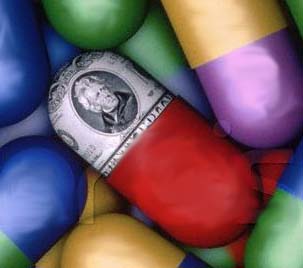
Arguably one of Kurt Vonnegut’s greatest novels:
Pages 76-77:
“Mr. Constant,” he said, “right now you’re as easy for the Bureau of Internal Revenue to watch as a man on a street corner selling apples and pears. But just imagine how hard you would be to watch if you had a whole office building jammed to the rafters with industrial bureaucrats—men who lose things and use the wrong forms and create new forms and demand everything in quintuplicate, and who understand perhaps a third of what is said to them; who habitually give misleading answers in order to gain time in which to think, who make decisions only when forced to, and who then cover their tracks; who make perfectly honest mistakes in addition and subtraction, who call meetings whenever they feel lonely, who write memos whenever they feel unloved; men who never throw anything away unless they think it could get them fired. A single industrial bureaucrat, if he is sufficiently vital and nervous, should be able to create a ton of meaningless papers a year for the Bureau of Internal Revenue to examine.”
Page 163:
“The lieutenant colonel realized for the first time what most people never realize about themselves—that he was not only a victim of outrageous fortune, but one of outrageous fortune’s cruelest agents as well.”
Page 169:
The only controls available to those on board were two push-buttons on the center post of the cabin—one labeled on and one labeled off. The on button simply started a flight from Mars. The off button was connected to nothing. It was installed at the insistence of Martian mental-health experts, who said that human beings were always happier with machinery they thought they could turn off.
Page 176:
“Any man who would change the World in a significant way must have showmanship, a genial willingness to shed other people’s blood, and a plausible new religion to introduce during the brief period of repentance and horror that usually follows bloodshed.”
Pages 182-183:
“Their wish, when they died,” said Rumfoord, “was not for paradise for themselves, but that the brotherhood of mankind on Earth might be enduring.”
“To that end, devoutly to be wished,” said Rumfoord, “I bring you word of a new religion that can be received enthusiastically in every corner of every Earthling heart.”
“National borders,” said Rumfoord, “will disappear.”
“The lust for war,” said Rumfoord, “will die.”
“All envy, all fear, all hate will die,” said Rumfoord.
“The name of the new religion,” said Rumfoord, “is The Church of God the Utterly Indifferent.”
“The flag of that church will be blue and gold,” said Rumfoord. “These words will be written on that flag in gold letters on a blue field: Take Care of the People, and God Almighty Will Take Care of Himsef.”
“The two chief teachings of this religion are these,” said Rumfoord: “Puny man can do nothing at all to help or please God Almighty, and Luck is not the hand of God.”
Pages 216-217:
“You come and tell me the big news,” said Boaz. ” ‘Boaz—’ you say, ‘we’re going to be free!’ And I get all excited, and I drop everything I’m doin’, and I get set to be free.”
“And I keep saying it over to myself about how I’m going to be free,” said Boaz, “and then I try to think what that’s going to be like, and all I can see is people. They push me this way, then they push me that—and nothing pleases ’em, and they get madder and madder, on account of nothing makes ’em happy. And they holler at me on account of I ain’t made ’em happy, and we all push and pull some more.”
“And then, all of a sudden,” said Boaz, “I remember all the crazy little animals I been making so happy so easy with music. And I go find thousands of ’em lying around dead, on account of Boaz forgot all about ’em, he was so excited about being free. And every’ one of them lost lives I could have saved, if I’d have just kept my mind on what I was doing.”
“And then I say to myself,” said Boaz, ” ‘I ain’t never been nothing good to people, and people never been nothing good to me. So what I want to be free in crowds of people for?’ ”
“And then I knew what I was going to say to you, Unk, when I got back here,” said Boaz.
Boaz now said it:
“I found me a place where I can do good without doing any harm, and I can see I’m doing good, and them I’m doing good for know I’m doing it, and they love me, Unk, as best they can. I found me a home.”
“And when I die down here some day,” said Boaz, “I’m going to be able to say to myself, ‘Boaz—you made millions of lives worth living. Ain’t nobody ever spread more joy. You ain’t got an enemy in the Universe.’ ” Boaz became for himself the affectionate Mama and Papa he’d never had. ” ‘You go to sleep now,’ ” he said to himself, imagining himself on a stone deathbed in the caves. ” ‘You’re a good boy, Boaz,’ ” he said. ” ‘Good night.’ “
Pages 279-280:
Once upon a time on Tralfamadore there were creatures who weren’t anything like machines. They weren’t dependable. They weren’t efficient. They weren’t predictable. They weren’t durable. And these poor creatures were obsessed by the idea that everything that existed had to have a purpose, and that some purposes were higher than others.
These creatures spent most of their time trying to find out what their purpose was. And every time they found out what seemed to be a purpose of themselves, the purpose seemed so low that the creatures were filled with disgust and shame.
And, rather than serve such a low purpose, the creatures would make a machine to serve it. This left the creatures free to serve higher purposes. But whenever they found a higher purpose, the purpose still wasn’t high enough.
So machines were made to serve higher purposes, too.
And the machines did everything so expertly that they were finally given the job of finding out what the highest purpose of the creatures could be.
The machines reported in all honesty that the creatures couldn’t really be said to have any purpose at all.
The creatures thereupon began slaying each other, because they hated purposeless things above all else.
And they discovered that they weren’t even very good at slaying. So they turned that job over to the machines, too. And the machines finished up the job in less time than it takes to say, “Tralfamadore.”
Page 294:
At first glance, the laboratory-gowned scientist seemed to be a perfect servant of nothing but truth. At first glance, one was convinced that nothing but truth could please him as he beamed at his test tube. At first glance, one thought that he was as much above the beastly concerns of mankind as the harmoniums in the caves of Mercury. There, at first glance, was a young man without vanity, without lust—and one accepted at its face value the title Salo had engraved on the statue, Discovery of Atomic Power.
And then one perceived that the young truth-seeker had a shocking erection.
Page 302:
“Whatever we’ve said, friends, we’re saying still—such as it was, such as it is, such as it will be.”
Page 320:
“You finally fell in love, I see,” said Salo.
“Only an Earthling year ago,” said Constant. “It took us that long to realize that a purpose of human life, no matter who is controlling it, is to love whoever is around to be loved.”





